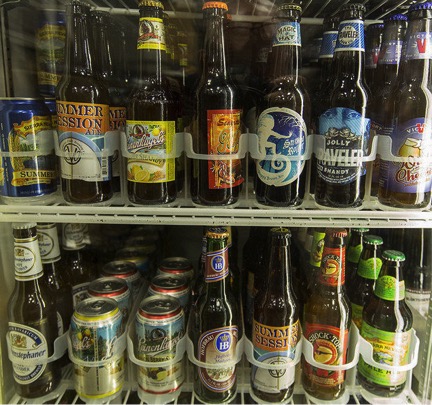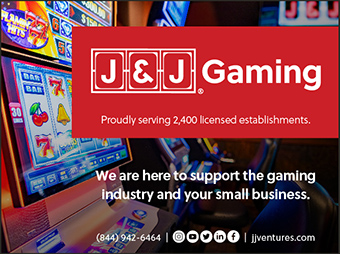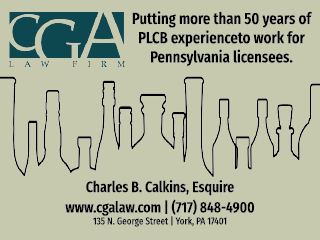PLCB tips to avoid the most common citations
 In an effort to help bars, restaurants, and taverns better understand various liquor laws and how to avoid fines and penalties, the Pennsylvania Liquor Control Board has put together a list of the most common citation issues. The five Liquor Code violations below are those for which licensees most frequently receive citations from the Pennsylvania State Police Bureau of Liquor Control Enforcement. Following each violation, we provide clarification on what the law requires and some tips on how to remain compliant.
In an effort to help bars, restaurants, and taverns better understand various liquor laws and how to avoid fines and penalties, the Pennsylvania Liquor Control Board has put together a list of the most common citation issues. The five Liquor Code violations below are those for which licensees most frequently receive citations from the Pennsylvania State Police Bureau of Liquor Control Enforcement. Following each violation, we provide clarification on what the law requires and some tips on how to remain compliant.
Sales to Minors.
The Liquor Code expressly prohibits sales of alcohol to anyone under the age of 21, requires retail licensees to take steps to prevent sales to minors and provides penalties for licensees that sell to underage patrons.
To avoid sales to minors:
- Develop and enforce strong policies regarding carding criteria (many retail licensees now employ 100 percent carding policies) and mandatory reporting of fraudulent IDs. Also develop a strong employee discipline policy for when carding and reporting policies are ignored or violated.
- Provide continued training for employees, like RAMP server/seller training, and keep abreast of changes to ID formats and security features.
- Utilize equipment like ID swipe devices and UV lights to check licenses.
Board-Approved Manager Failed to Complete RAMP Training within 180 Days.
The Liquor Code requires all managers to complete RAMP Owner/Manager training within 180 days of being appointed. To avoid citation and ensure your new managers are trained timely, establish a RAMP compliance policy and implement a system to track deadlines any time a new manager is hired. Also note that any change in the Board-approved manager must be reported to the PLCB within 15 days of the change. And as a reminder, RAMP server/seller training must also be completed within six months of hiring a new alcohol service employee.
Illegal Gambling or Devices.
Relative to retail licensees, the only legal forms of gambling are Pennsylvania Lottery sales and small games of chance, including tavern gaming. Gambling like sports betting pools, quarter auctions and poker nights are illegal, as are any gambling devices that rely on a player’s skill to award prizes.
Certain games (pull tabs, daily drawings and raffles, for example), are legal, but only for clubs that obtain small games of chance licenses from county treasurers and retail licensees that apply for and obtain tavern gaming licenses from the PLCB. Small games of chance and tavern games both have rules governing how often they can be conducted, how money derived from them can be used and record-keeping. Tavern gaming licensees also have tax obligations specific to those games.
Permitted Smoking.
Since 2008, indoor smoking in public places, including bars and restaurants, is generally prohibited. To avoid citation, post signage that clearly indicates smoking won’t be tolerated, and provide continued training and discipline for employees to ensure the no-smoking policy is enforced.
No Valid Health Permit.
All retail liquor licensees must maintain a current and valid health permit issued by the local permitting authority. Implement a system to track expiration dates and filing deadlines to avoid permit lapse and potential citation.
Establishments with questions regarding licensing matters may contact the PLCB Bureau of Licensing at ra-lblicensing@pa.gov or 717-783-8250.
This column was written by Rodrigo Diaz, PLCB Chief Counsel; Tisha Albert, PLCB Director of Regulatory Affairs; and Elizabeth Brassell, PLCB Director of Policy & Communications. The Pennsylvania Licensed Beverage and Tavern Association thanks each for contributing these tips to help our Members avoid penalties.







